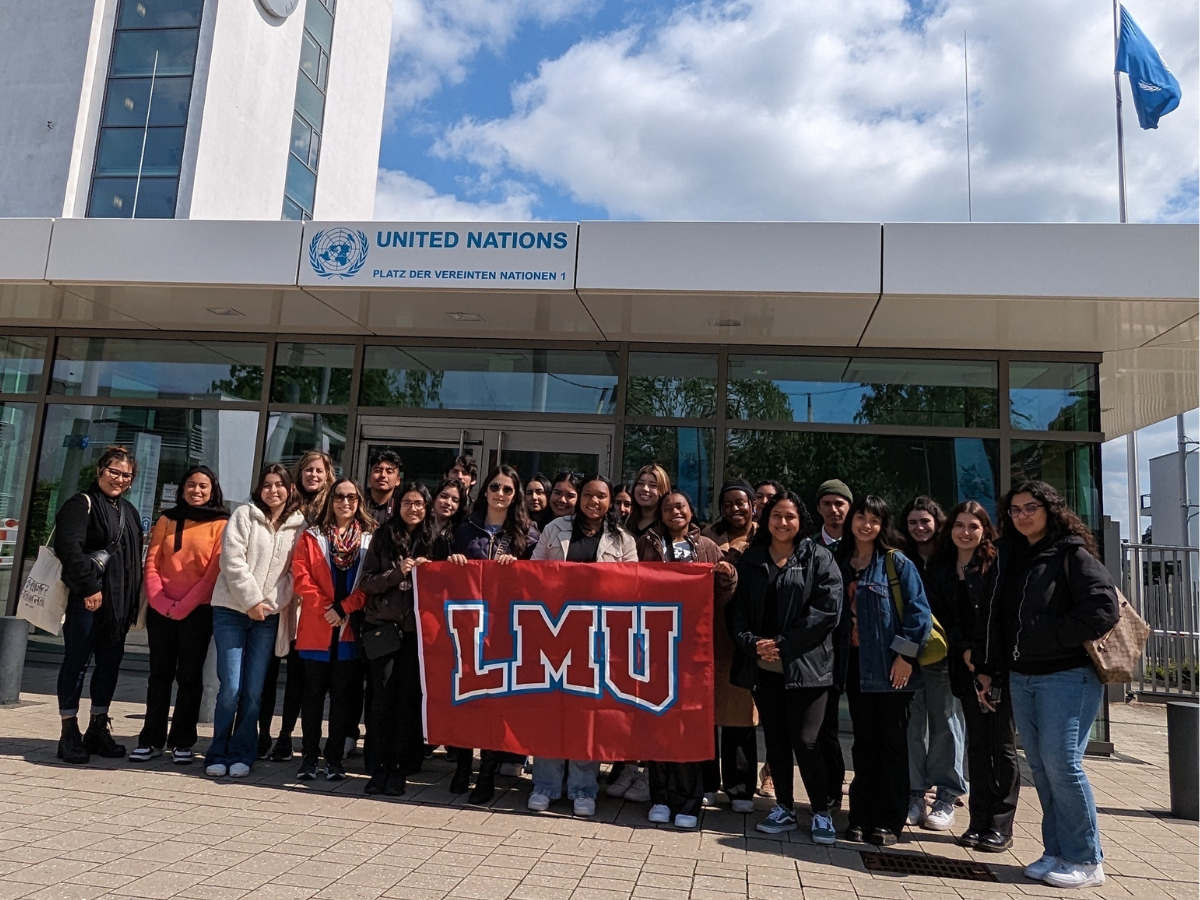
After a three-year hiatus, the LMU First To Go study abroad program relaunched in May with a 10-day program in Bonn, Germany, taking 20 first-generation LMU undergraduate students abroad to gain important life and career-readiness skills.
“For students who are trailblazers in their families, being the first to attain a four-year college degree, these engagements are life-changing and equip them with a wealth of new knowledge, skills, and perspectives that have a profound effect,” said Roberta Espinoza, Ph.D., vice provost for Global-Local Affairs.
The First To Go Abroad program, a collaboration between Study Abroad and First To Go, was developed to encourage first-generation college students to study abroad. At LMU, a first-generation college student, a demographic that is often underserved in many aspects of higher education, is any student whose parent(s) and/or caretaker(s) did not earn a four-year bachelor’s degree from a U.S.-based college or university. Previous trips to the Dominican Republic explored social justice issues and allowed LMU students to meet fellow first-generation students from local colleges and universities.
This year, students took part in a four-day leadership workshop designed to teach them about personal leadership styles and potential, as well as explore topics of collaboration and teamwork. The program was hosted by the Akademie für internationale Bildung (AiB), LMU’s longtime study abroad partner. All participating students will receive a certificate from Institut für Bildung und gesellschaftliche Innovation (Ibugi), a partner of AiB. Complementary study trips to Cologne and the U.N. campus in Bonn explored topics of migration and social justice in Germany, giving students the valuable opportunity to combine travel and engaged learning while abroad.
“Our return to First To Go Abroad brought together 20 student leader-advocates who remind and call on us as an institution to intentionally co-create personalized initiatives for historically and presently marginalized, identity-intersectional students,” said Alexia “Lexie” Pineda Soto, Ed.D., program coordinator for First To Go. “Student histories, realities, and leadership are at the heart of First To Go Abroad, and it is a cherished responsibility and privilege to continue transforming this program to meet and affirm students’ lived experiences on a local-global scale.”
Espinoza, who has devoted her career to research about higher education access, lends her full support to the First To Go Abroad program. “This summer’s collaboration between Study Abroad and First To Go was an impressive testament to LMU’s commitment to inclusive excellence and equitable access to global education for all students,” she said. “As a first-generation college student myself, my participation in the program reemphasized the profound transformation that these purposeful experiences can produce.”
While first-generation college students represent a growing demographic of the U.S. higher education landscape, and certainly make up a large portion of the undergraduate student body at LMU, they are consistently underrepresented in study abroad programming. The First To Go and Study Abroad collaboration aims to construct travel opportunities that are content-rich, reflective, rooted in social justice education, student-centered, and experienced alongside other first-generation students who wish to include international education in their college narrative. Previous program participants have gone on to participate in summer and semester study abroad programs, volunteering, and employment abroad.
“The benefits extend beyond personal growth and professional advancement, but reach their families and communities in meaningful, tangible ways,” Espinoza said. “Through this initiative, we are doing more than cultivating globally conscious individuals. We’re actively constructing bridges to a world that’s more inclusive, empathetic, and enlightened.”







